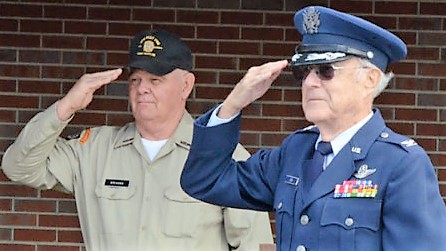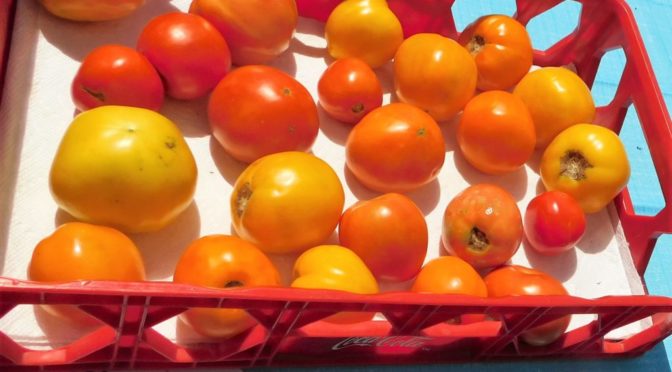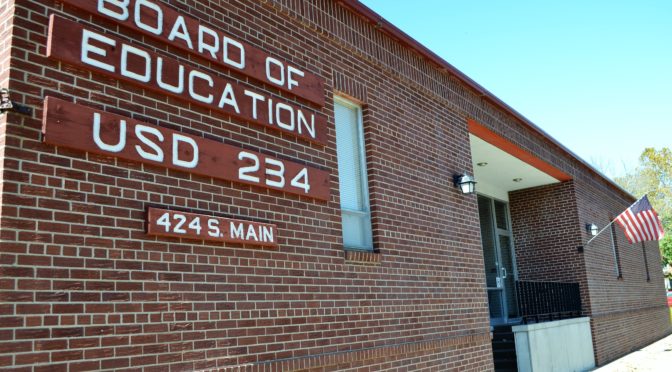Monthly Archives: July 2018
Farmer’s Market Tomato Festival July 28 At Skubitz Plaza
Taste the glossy red fruit tomorrow at the farmers market to see which is your favorite!
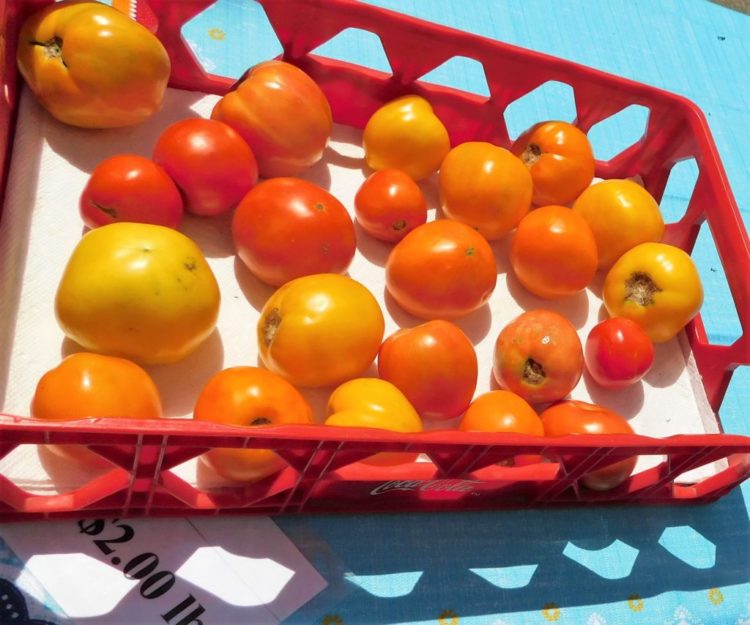
The annual Fort Scott Farmers Market Tomato Festival is Saturday, July 28 at Skubitz Plaza, starting at 8 a.m.
The public is welcome to bring in their tomatoes for the contest as well, Stacey Atkins, president of the FSFM said.
“People can sample tomatoes and vote for their favorite,” Atkins said. “It’s always fun to sample the produce.”
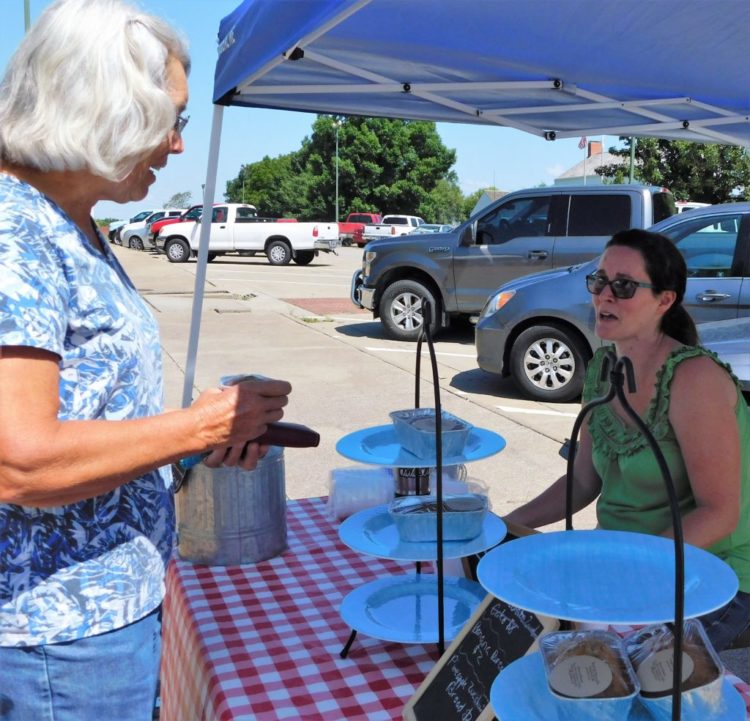
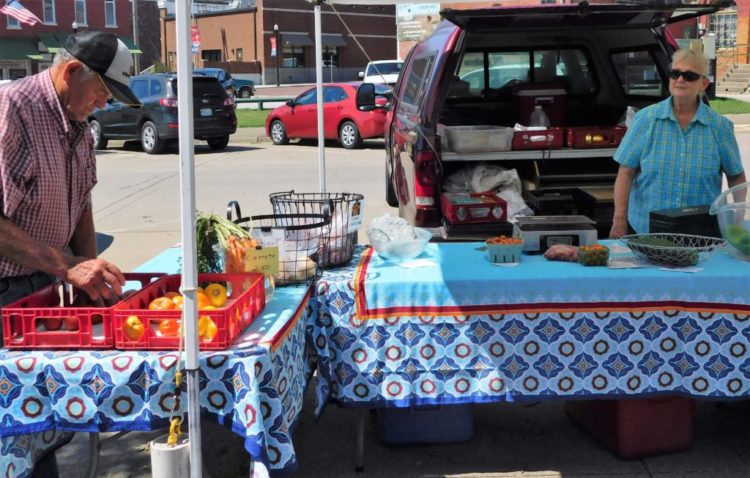
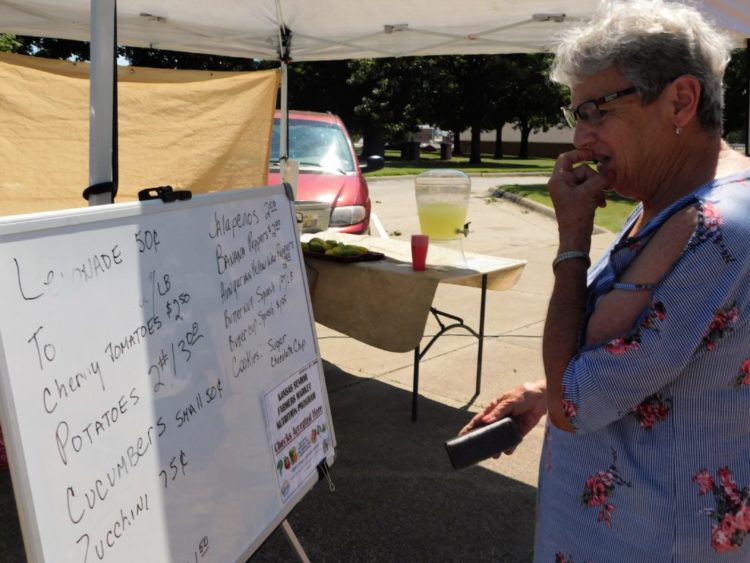
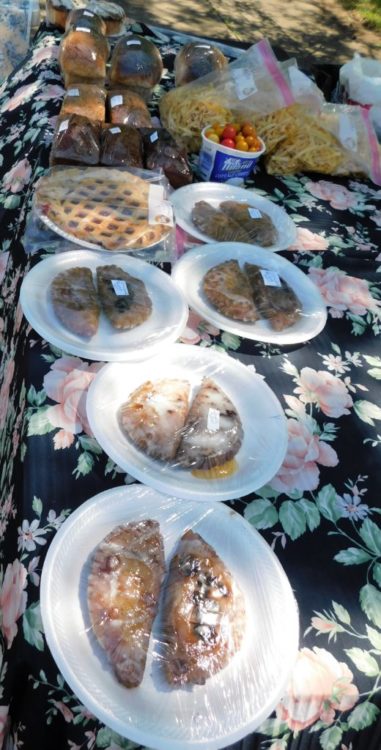
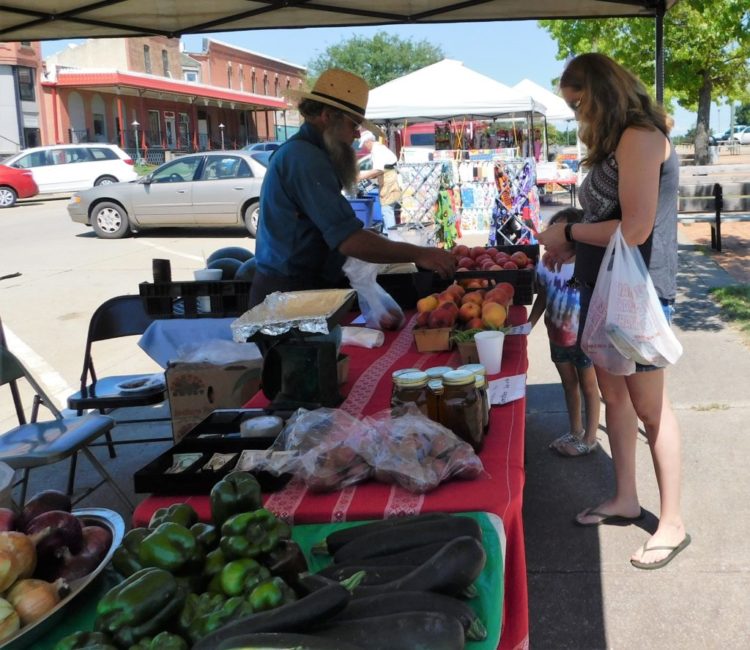
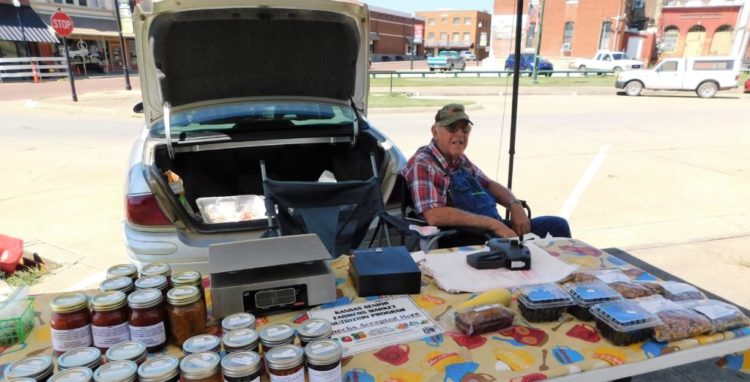
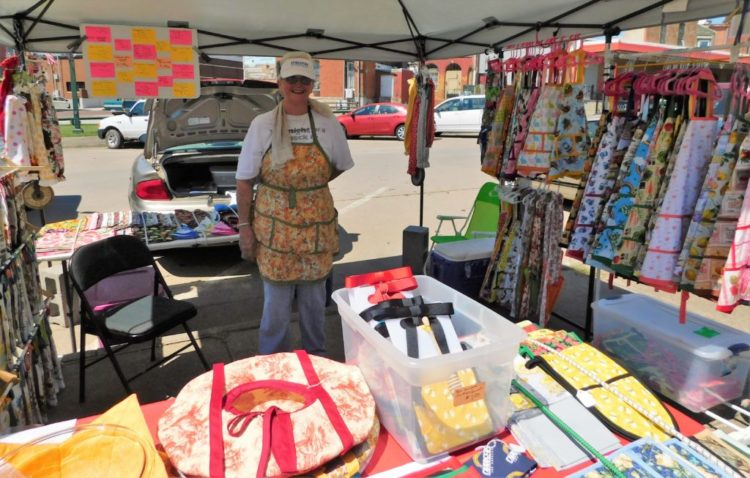
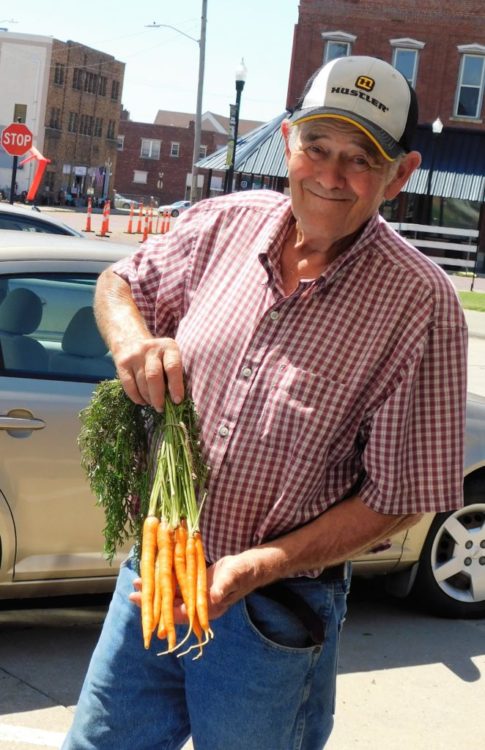
The Bourbon County Sheriff’s Office Daily Reports July 27
What’s Happening In Fort Scott This July 27-29
False Advertisers by Patty LaRoche
I am a sucker for false advertising. When I die and you come to my estate sale (which will be held even if Dave survives me because he will be thrilled to get rid of my collections), you will see for yourself. Let’s start with recipe books. I have never seen a cookbook I did not like. Even if ingredients can be purchased only in Bangladesh, if the photos appear tasty, I buy the book. The problem? No dish I ever have made even remotely resembles the cookbook picture of how master chefs–and photo-shopping–make it appear.
Television gadgets target me. Zucchini shredders. Mosquito electrocuters. Bunion erasers. Microwave bacon dividers. Roto-rooter snakes. Canvas deck covers. Flashlights that illuminate all of New York City. Any pizza with stringy cheese. It’s all about the way the goodies are presented. Rarely do they measure up.
And how about books? Against my wishes, Dave bought me a Kindle so I (he) would not have to lug 200 pounds worth of books when we travel. I resisted, but once I gave it a chance, I was hooked. Then I signed up for BookBub. Every day three or four books are offered at super cheap prices. Unfortunately, few match their reviews or covers. Even Christian books disappoint. History books are way too…well, historical (and assume I already know a lot more about the past than I do). Occasionally I buy a humorous book. So far, they have all ended up in my “deleted” file. Surely I’m not the only one who wants funny without profanity and sex!
Then there are games. You know, the ones with covers that show loving families leaning in at the kitchen table, everyone laughing, making a lifetime memory. We can be that family, I used to tell myself, and we could be if even one of my kids could have been trusted as a banker or realtor or deck dealer. Or if one, unnamed son wouldn’t have tossed the game pieces to the ceiling or delighted in screaming “50 card pick-up” if there was the slightest chance he might not win. Or if I would have accepted “IT IS A WORD. IT IS A WORD. I DON’T CARE IF IT’S NOT IN THE DICTIONARY. TGKSU IS A WORD. IT IS. IT IS. IT IS.”
This past week, I drove seven hours to (among other things) check out a potential 2018 family Christmas gathering spot—a houseboat with photos that boasted a gourmet kitchen, a top-deck jacuzzi, its own small beach and enough room to sleep 12. I had all but clicked on the “Reserve Now Before It’s Gone” button before deciding to see it in person. Risking my life to walk on its pier, I actually strode past it, wondering how such a “condemned” boat hadn’t fallen apart and sunk, before realizing that was the one offered for rent.
False advertising at its best! And then my Scripture reading today shows that Jesus himself abhorred fakeness, only in this case, the finger wasn’t pointing at cookbooks or the television or books or games; it was pointed in my direction.
Matthew 23: 27– “Woe to you, scribes and Pharisees, hypocrites! For you are like whitewashed tombs which indeed appear beautiful outwardly, but inside are full of dead men’s bones and all uncleanness. Notice that Jesus calls these naysayers “Hypocrites,” the word for Greek actors who placed a mask over their face to pretend to be someone they weren’t.
And because Scripture says we are all sinners, I assume you join me in the list of the guilty ones. We attend church, smiling at all of our brothers and sisters in Christ, after having just barked at someone in our family. We sing worship songs after sharing gossip about one of God’s children. We fail to share the gospel but have no problem wearing a decorative cross around our necks.
We look the part on the outside but need a major overhaul on the inside.
False advertisers should take notice.
I guess, in reality, that includes me.
The Bourbon County Sheriff’s Office Daily Reports July 26
WIC Is Electronic
WIC Benefits Now Available by Electronic Benefit Transfer Statewide
Kansas 26th state to implement federally-mandated EBT system, following Shawnee Co. pilot
TOPEKA – The federal Women, Infants, and Children (WIC) program, administered by the Kansas Department of Health and Environment serves 30,800 families across the state. Historically, food available through the program could only be acquired at grocery stores utilizing paper checks. However, the federal government now requires states to issue an Electronic Benefits Transfer (EBT) card to recipients to purchase food benefits.
The pilot to test the use of the card launched in September 2017 in Shawnee County. The $3.2 million conversions to eWIC were funded by the United States Department of Agriculture. All states are required to implement EBT WIC programs by Oct. 1, 2020.
“This technology project came in on time and within budget,” David Thomason, Kansas WIC Director said. “The alternative to paper checks has been well received by our clients and merchants.”
WIC provides participant-centered nutrition education, healthy food and breastfeeding support to low-income families. Once a family qualifies for WIC, they are allotted foods to meet their nutrition needs, through grocery stores, using the EBT card. At the register, the family will first swipe their eWIC card to deduct the cost of approved items. They will then pay for any remaining items with another form of payment. As a fraud deterrent, the EBT card requires a PIN to access benefits.
WIC provides services at more than 100 clinic sites throughout Kansas and currently serves approximately 50,200 women, infants, and children under five.
USD 234 Civil Rights Investigation
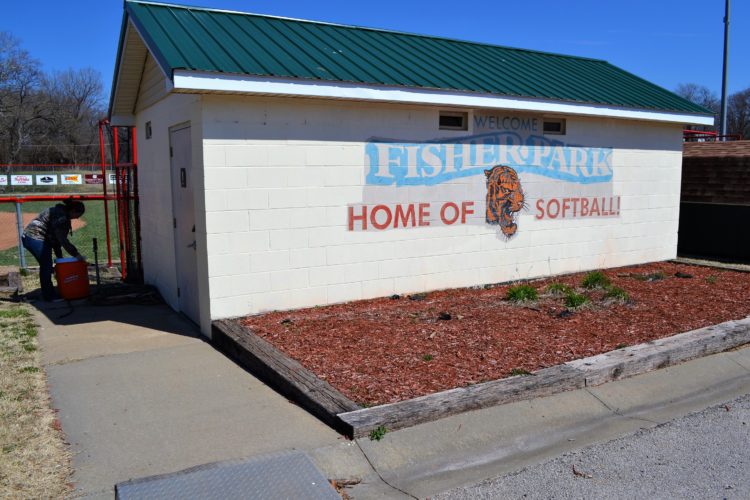
An anonymous complaint against USD 234 was filed on June 14, 2016, with the U.S. Department of Education, according to the government education website: https://www2.ed.gov/about/offices/list/ocr/docs/investigations/open-investigations/tix.html?queries%5Bstate%5D=KS.
“There has been a Title IX complaint against the school district,” USD 234 Superintendent Ted Hessong, said. “There is an investigation currently and the school district is unable to comment more specifically at this time.”
The investigation pending is regarding Title IX Athletics, according to the website.
The Office of Civil Rights at the U.S. Department of Education works to ensure equal access to education and resolve complaints of discrimination, according to its’ website https://www2.ed.gov/about/offices/list/ocr/docs/howto.html
In June 2018, City Attorney Bob Farmer was asked by the Fort Scott City Commission to send USD 234 a letter to be sent with the school district’s paperwork on the case to the Office of Civil Rights, according to the city commission minutes of June 19, 2018.
In the letter Farmer sent, the city stated it had no plans to build a clubhouse or dressing room at Fisher Park because there is no funding at this time to do so, according to the minutes.
The city owns Fisher Park and allows the USD 234 to use the facilities there for the FSHS girls softball program, Hessong said.
“The OCR wanted a letter from the city stating that the city has no intention of building at Fisher Park,” City Manager Dave Martin said.
“We have been unable to find out who filed the complaint,” Martin said. “The state will not tell the person who turned them in.”


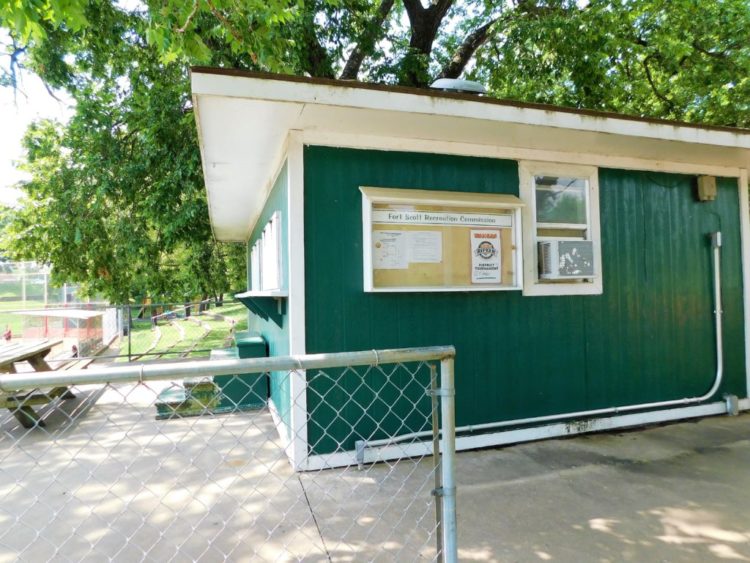
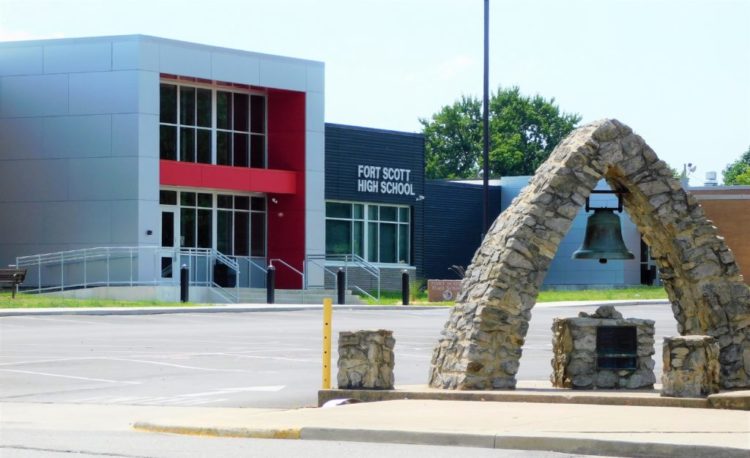
Keeping Home-Preserved Foods Safe

Commercial foods are typically prepared in an approved food processing facility and required to display a “best by” or expiration date. When foods are preserved in the home, however, food safety and security depend on the cook.
The failure to follow a tested recipe or to store food in a safe place can jeopardize food safety, yet recognizing when home preserved foods are past their prime or no longer safe-to-eat is sometimes a challenge, said Karen Blakeslee, Kansas State University Research and Extension food scientist.
Tell-tale signs that suggest food is suspect and should be discarded include:
* Vacuum seal on the lid has been compromised; lid may pop, bulge, or show signs of rust;
* Jar is chipped, cracked or otherwise damaged;
* Evidence of loss of food quality, such as the presence of mold, loss or change of color, texture, or off odor.
* Evidence of insect or rodent infestation; and
* Date made is unknown.
Do not taste or use food from any jar that has become unsealed or shows any signs of spoilage, Blakeslee said.
To keep home canned foods safe, she recommends:
1) Use only tested recipes from a reliable source (such as Extension, USDA, or Ball);
2) Use canning equipment that is in tiptop shape. Check the pressure canner gauge annually or more frequently, if a malfunction is suspected. Replace damaged jars and containers. Use new lids;
3) Follow recipe directions exactly;
3) Label and date all home-preserved foods;
4) Store home canned foods in a cool, dry and dark place. Avoid attics, garages, or shelving near a water heater or other appliances that generate heat;
5) Use home preserved foods within one year; and
6) Check food storage area regularly to inspect for potential problems, such as a water leak or insect damage.
Before beginning to use your canner each year, it is recommended that pressure canner/cooker dial gauges be tested for accuracy. This can be done quickly and easily in any of the Southwind Extension offices at no cost.
More information about food preservation is available at K-State Research and Extension Southwind offices, and by contacting Kathy at 620-365-2242 or by email at [email protected].
An additional resource is the National Center for Home Food Preservation, located at the University of Georgia and online at: http://www.uga.edu/nchfp.
The Fort Scott Police Department Daily Reports July 25
The Fort Scott Police Department daily reports can best be viewed on a computer.
The FSPD is located at 1604 S. National, Fort Scott, KS 66701 and can be reached at 620-223-1700.
Click below, then click on the image to enlarge:
FS Community Foundation Seeks Grant Applications
The Fort Scott Area Community Foundation is thrilled to announce that the number of grants available for the upcoming 2018/2019 cycle totals $32,000, exceeding last year’s total by $2,000 and $11,000 more than the previous year. Thanks to the generosity of all who contributed to the FSACF general fund, the interest accrued will allow the grant committee more opportunities to benefit the 501c3 applicants who meet the qualifications.
Monies granted to the 18 beneficiaries from last year’s cycle were used for a variety of causes, including helping to purchase medals for Special Olympics’ Bourbon County participants, providing benefits to cancer patients, assisting the Beacon to meet family needs, funding classes for CASA volunteers and purchasing lights for the local pickleball courts.
The FSACF 2018 Grant Applications will be released on Wednesday, August 1, at which time they will appear on the FSACF website or may be picked up in person at the Chamber of Commerce, 231 E. Wall. Nonprofits such as churches, governmental entities, or organizations with a 501c3 status are encouraged to apply.
Applications are due by Tuesday, August 28. Acceptance and declination letters will be mailed on Tuesday, October 16. Grants will be awarded at the Foundation’s Chamber Coffee held in the Landmark Bank lobby at Third and Main at 8 A.M. on Thursday, November 1.

